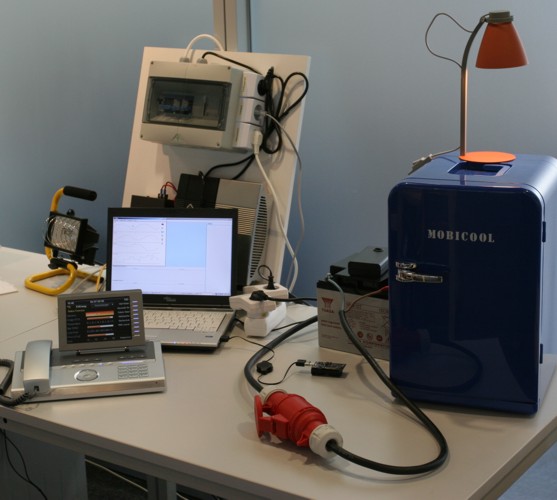| Type |
SEP, IDP, BA, DA, MA |
| Supervisor |
Prof. Dr.-Ing. Alois Knoll |
| Advisor |
Dipl.-Inf. Stephan Sommer |
| Associated Project |
eSOA |
| Programming Language |
C / NesC |
| Language |
English or German |
Description
More and more devices, e.g. at home, become networked. The resulting distributed sensor and actuating capabilities offer many possibilities to create an additional value. However, the development process of control applications running in distributed sensor/actuator networks is rather complex. Simple programms must be split into several processes running on the nodes of the distributed system. Aspects, such as communication, latency, heterogeneity, have to be taken into account.

In previous work, we have designed a model-driven development tool for the development of control systems running on disitributed sensor/actuator networks. The figure above shows one demonstrator implemented in this context: a energy-safing home automation system. However, with increasing sensor network size and complexity, reconfiguration of applications using the same sets of sensors or actuators is challenging due to possible dependencies.
In this student thesis, a mechanism should be developed to guarantee a consistent system at and after a reconfiguration.